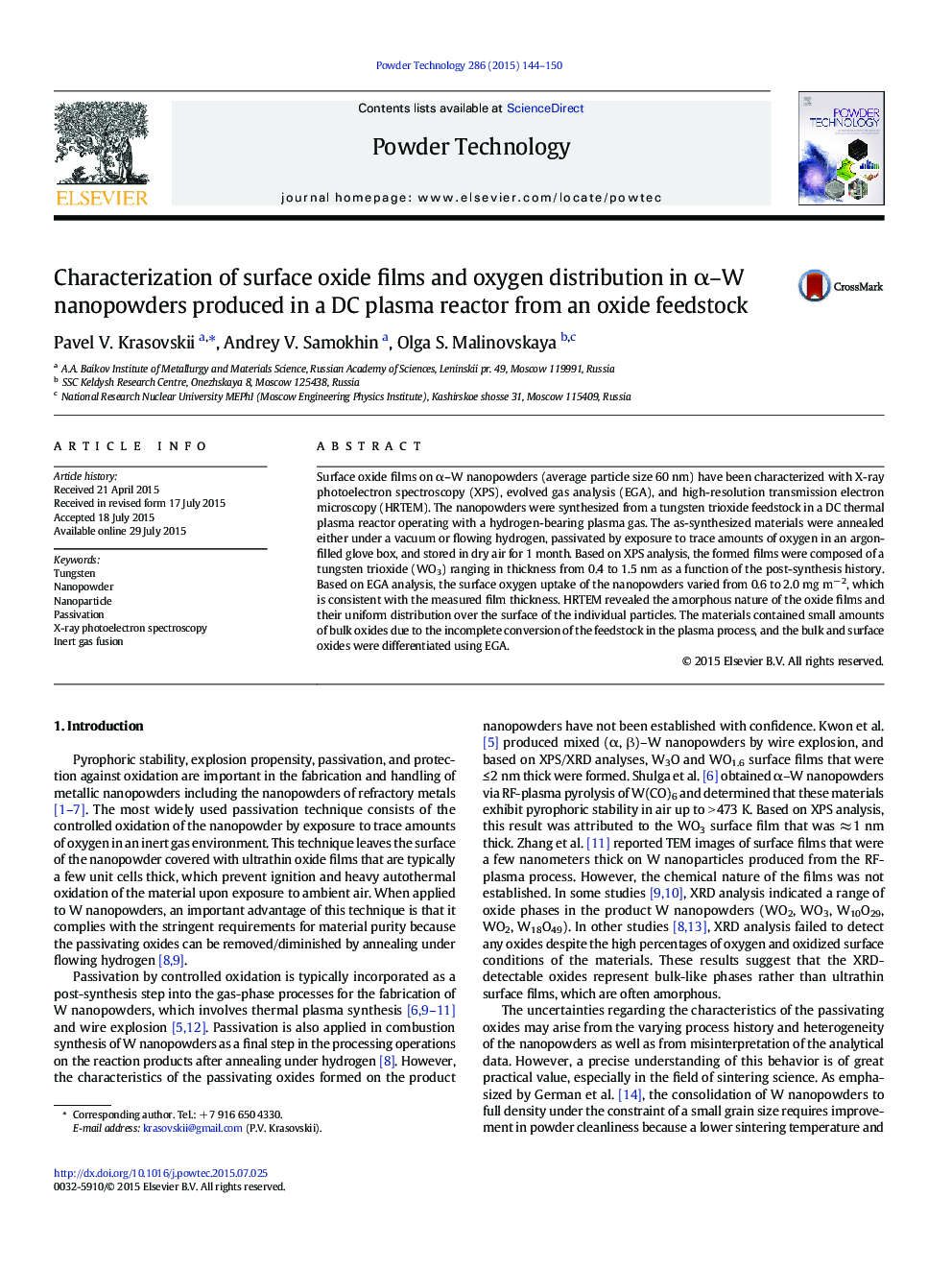| کد مقاله | کد نشریه | سال انتشار | مقاله انگلیسی | نسخه تمام متن |
|---|---|---|---|---|
| 235215 | 465631 | 2015 | 7 صفحه PDF | دانلود رایگان |

• The W nanopowders are produced in a DC thermal plasma jet from a WO3 feedstock.
• The as-synthesized nanopowders are annealed under H2/vacuum and passivated.
• The formed surface oxide films are composed of a tungsten trioxide (WO3).
• The film thickness ranges from 0.4 to 1.5 nm based on the process history.
• The oxygen uptake varies consistently with the film thickness.
Surface oxide films on α–W nanopowders (average particle size 60 nm) have been characterized with X-ray photoelectron spectroscopy (XPS), evolved gas analysis (EGA), and high-resolution transmission electron microscopy (HRTEM). The nanopowders were synthesized from a tungsten trioxide feedstock in a DC thermal plasma reactor operating with a hydrogen-bearing plasma gas. The as-synthesized materials were annealed either under a vacuum or flowing hydrogen, passivated by exposure to trace amounts of oxygen in an argon-filled glove box, and stored in dry air for 1 month. Based on XPS analysis, the formed films were composed of a tungsten trioxide (WO3) ranging in thickness from 0.4 to 1.5 nm as a function of the post-synthesis history. Based on EGA analysis, the surface oxygen uptake of the nanopowders varied from 0.6 to 2.0 mg m− 2, which is consistent with the measured film thickness. HRTEM revealed the amorphous nature of the oxide films and their uniform distribution over the surface of the individual particles. The materials contained small amounts of bulk oxides due to the incomplete conversion of the feedstock in the plasma process, and the bulk and surface oxides were differentiated using EGA.
Figure optionsDownload as PowerPoint slide
Journal: Powder Technology - Volume 286, December 2015, Pages 144–150